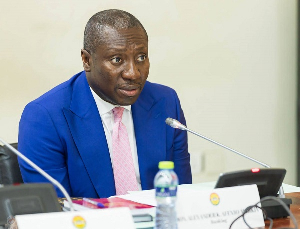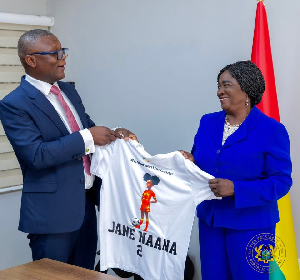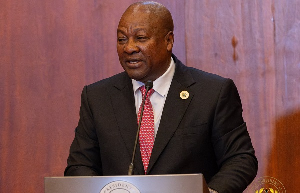In the tapestry of a nation, the treatment of its elderly stands as a testament to its compassion, values, and commitment to care for its citizens. In Ghana, a country known for its rich cultural heritage and warm hospitality, a deep concern arises when we examine the way in which our elderly are treated.
In the light of recent events, it is becoming evident that the nation is falling
short in providing adequate provisions for its senior citizens, leaving them to fend for themselves in their old age.
The elderly, who have dedicated their lives to building the foundations upon which our society stands today, deserve to be honored and supported in their golden years.
However, the reality is far from this idyllic vision. Ghana faces significant gaps in ensuring the well-being of its elderly population, with inadequate social welfare programs and limited access to healthcare services tailored to their unique needs.
A lack of sufficient provisions has forced many individuals to take their destinies into their own hands, making personal preparations for their final days on earth. While this resilience and self- reliance are commendable, it should not be a substitute for a robust and caring state that supports its citizens throughout their lives.
What is particularly distressing is the recent domestic debt exchange program that has impacted pensioners in Ghana. This program has led to the erosion of the value of their investments, leaving many retired individuals grappling with financial instability in their retirement years.
This is an alarming state of affairs, considering that the funds saved through
pensions were meant to provide a sense of security and stability in old age.
Perhaps even more disheartening is the lack of collective action to protect the rights and well- being of the elderly.
While these citizens have contributed significantly to the development of
our nation, they are seemingly left to fend for themselves in the face of adversity. The absence of a comprehensive social safety net and support system for the elderly sends a disquieting message about the values and priorities of our society.
In times like these, we are reminded of the poignant words of the German Lutheran pastor Martin Niemöller in his iconic poem "First They Came". If he was writing his poem under our current circumstances, his poem might have read:
First, they came for the elderly, and I did not speak out because I was not elderly. Then they came for the workers, and I did not speak out because I was not a worker.
Then they came for the youth, and I did not speak out because I was not young.
These lines serve as a sobering reminder that failing to advocate for the rights and well-being of our elderly today may come back to haunt us in the future. The youth of Ghana must recognise that they are the architects of tomorrow's society and that the treatment of our elderly reflects the compassion and humanity of our nation as a whole.
Ghana must rise to the occasion and prioritise the care and support of its elderly citizens. By investing in comprehensive social welfare programs, accessible healthcare services, and policies that safeguard pension funds, we can ensure that our senior citizens are treated with the respect and dignity they deserve. By doing so, we will not only honor the legacy of our elders
but also create a society that cherishes and safeguards the well-being of its people.
In conclusion, as we reflect on the treatment of the elderly in Ghana, we are compelled to question whether our nation truly prioritizes the well-being of its citizens throughout their lives.
The lack of adequate provisions and the erosion of pension funds call for urgent action and advocacy. If we, the youth, fail to stand up and fight for the rights of the aged, we risk being left to face a similar fate when we, too, reach old age. Let us heed the call to protect and honor our elderly citizens, for the strength of a nation lies in the compassion and care it extends to all its
people, regardless of age.
Opinions of Tuesday, 8 August 2023
Columnist: Albert Allan Dakyie
Ageless wisdom, timeless values: Nurturing Ghana's aged with love
Entertainment














